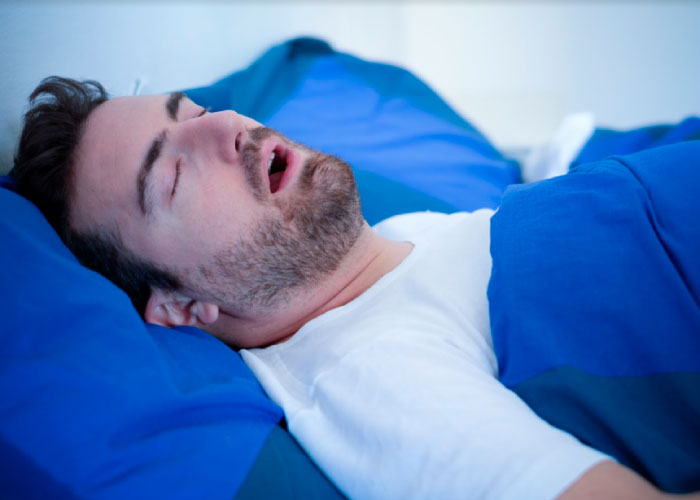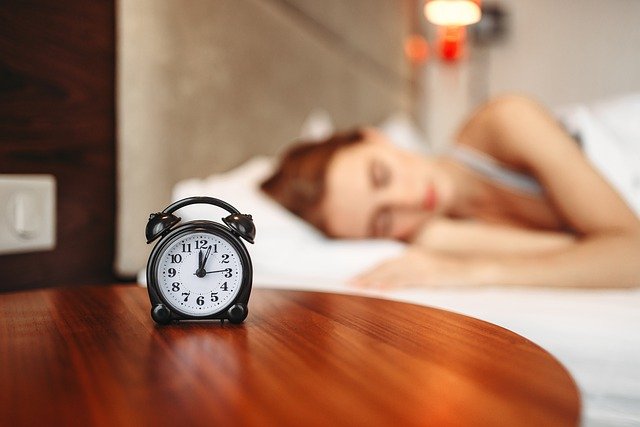Last updated on July 7th, 2023 at 11:27 am

Sleeping is a vital part of our daily routine, a time for the body and mind to repair and recover from the demands of the day. However, just as sleeping too little can be detrimental to our health oversleeping also carries many of the same risks, including heart disease, diabetes, obesity and memory problems.
Oversleeping is seen as the result of a disordered sleeping cycle which may be caused by a number of different factors.
As with narcolepsy and restless leg syndrome, sleep apnoea is also a sleep problem that can result in an increased risk of serious health issues. Although this disorder is largely associated with disturbed sleeping patterns due to the frequent interruptions from breathing difficulties, it can also lead people to spend longer in bed trying to recover from their daily fatigue and drowsiness.
How Long Should We Be Sleeping Each Night?
Although there is general consent on how long someone needs to be sleeping each night, health and lifestyle factors can result in slight variations between individuals.
Recommendations based on extensive research advise the average adult should look to get 7 to 9 hours of rest every night. It is recommended children should be sleeping for longer lengths of time, with toddlers aged between 1 to 2 years old needing 11 to 14 hours each day, while school age children between the ages of 6 to 13 years should be sleeping between 9 and 11 hours each day.
The recommendations are designed to offer an overall guidance, how much time you should ideally be asleep to reduce the increased risk of health issues linked to disordered sleep.
Yet individuals will also need to factor in their own circumstances to find a sleeping routine which is best for them. Age, genetics, levels of exercise, existing health conditions and other factors such as stress can all play a role in how much rest we require. From time to time this can also mean we find ourselves sleeping more than normal.
Some people can function with sleeping for only 6 to 7 hours a night, while others may find they operate best only after 9 hours a night. But for most people having 7 to 9 hours of quality rest each night sees them fully refreshed for the day ahead. Anyone who is consistently sleeping for 9 hours or more each night and who still find themselves fatigued during the day should consult with their doctor to assess the reason.
Reasons for Oversleeping
While your age, genetics, health and lifestyle can affect how much rest you need at night, further factors can cause you to oversleep. These include stress, drugs and alcohol, as well as a number of medications. Depression is also linked to oversleeping with excessive oversleeping often a warning sign for younger adults, with around 40% of those who are under the age of 30 and suffering with depression also experiencing oversleeping issues.
Oversleeping is also called hypersomnia and is seen as a medical disorder. Another disorder, sleep apnoea, is normally associated with not sleeping enough due to the frequent awakenings during the night. Yet the flip side of this is the resulting fatigue can increase the feeling you need more rest and lead to even more hours in bed as you try to make up for the poor quality of your sleeping time.
Risks from Oversleeping
Disruptions to our important sleeping cycle such as oversleeping can lead to an increased risk from a number of health conditions. These include:
- Heart disease
- Obesity
- Back pain
- Headaches
In the case of heart disease, although the exact reasons have yet to be established studies have shown women who slept between 9 and 11 hours a night were 38% more at risk of heart disease compared to women who slept for the recommended 8 hours a night. Studies have also concluded those who regularly slept for 9 to 11 hours a night had much higher death rates compared to people sleeping 7 to 8 hours each night.
Just as depression can be a symptom and factor in oversleeping it can also become a risk factor too, with an estimated 15% of those with depression oversleeping. Without a regular sleeping cycle, the depression can worsen.
How to Address Oversleeping
Everyone will oversleep occasionally for some reason, but if it is becoming a regular pattern you should consult your doctor. Oversleeping can often be linked to another health issue and your doctor will be able to help address both conditions. If your oversleeping is due to a medication you are taking they will also be able to recommend a possible solution.
If you are often fatigued through the day, snore heavily and have concentration issues your doctor may recommend a test for the disorder obstructive sleep apnoea, where the upper airways narrow, resulting in breathing difficulties which cause you to awake many times a night. Once diagnosed this is a treatable disorder, which means you can return to nights sleeping without any disturbance.
Sleep is a vital restorative tool for the body and by prioritising it as one of our main daily tasks we can help develop a proper sleeping cycle. We should aim to go to bed the same time each night and ensure a bedroom environment geared for sleeping. This means a temperature and level of darkness and sound which encourages you to fall asleep, as well as a comfortable bed and mattress.
By exercising regularly and refraining from alcohol and caffeine in the lead up to going to bed you help promote a healthy sleeping routine. By paying attention to your sleeping routine and environment and how they affect your mood and energy levels you will be able to better assess your own individual requirements.
Do You Have Sleep Apnoea Symptoms?
Snoring, waking up gasping, daytime fatigue — these are just a few symptoms of Obstructive Sleep Apnoea, a serious medical condition. The body and brain are deprived of oxygen during night hours, as the airways are continually closed off. It’s very common, especially among older men who are overweight.
Does someone you love (or you) suffer from sleep problems? Are you already ready to nap, to catch up on sleep? Always fighting fatigue?
An Intus At-Home Sleep Test can tell you whether you might have this condition. It’s an easy test and you simply sleep in your own bed, not in a sleep lab.
Order the At-Home Sleep Test
Shop for the highest-quality selection of CPAP devices


